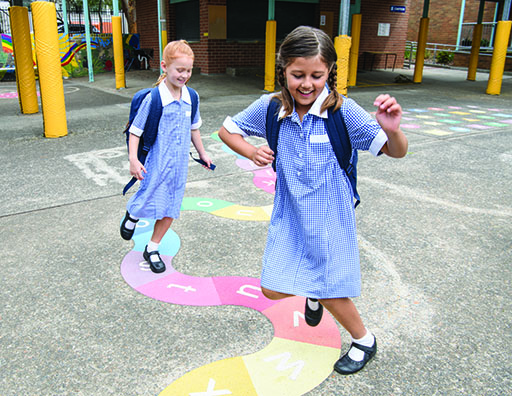2.1.1 Social play
Conversations with the children about their playgrounds were littered with references to friends. Some comments simply related enjoyment of certain types of activities with friends’ enjoyment – ‘Because I kind of like football … And my friends do’ (Y3 boy) – while others portrayed complex dances of interactions in which the game and roles taken within it became inextricably bound together:
It’s a special game of It and someone was It, like Christian was first and we had to hide. If someone, if Christian gets out of the bench we have to run to the bench. After that, well Oliver was it and he saw Antonio there and he just came and punched him in the tummy.
Not surprisingly, perhaps, the social context of playground activities meant that some children felt isolated and alone. Loneliness was the most frequently cited negative association with the playground, and there were no evident differences according to gender or age:
I drawed [sic] me how I was crying … Because I want to play with someone and they said go away.
and
I’m drawing myself on the bench because I’m Lonely.
The failure of peers to follow rules, roles and conventions of play were often cited as reasons for games coming to an end or, at least, for becoming less enjoyable than they might otherwise have been. One boy spoke about the need for a referee or ‘judge’ as an arbitrator in the relatively complex games of the older children:
It’s kind of bad because one time there was a … because everyone was in a row. It happens every single day. See we don’t have a judge who is going to actually do things for us and he’s not going to help us.
Teaching assistants (TAs) were often called in to take on peace-keeping roles, but even then success was not guaranteed:
Also sometimes the TAs, sometimes the other children think that the TAs will forget its blah-blahs turn we can just get another turn by standing outside the gate and saying it’s our turn. So they go to the gate and say it’s their turn and then they get two or three goes in the week, which means that some classes don’t get their turn.

